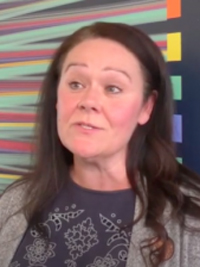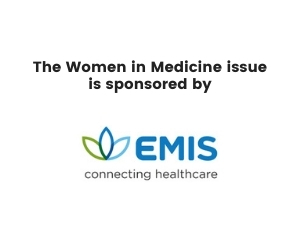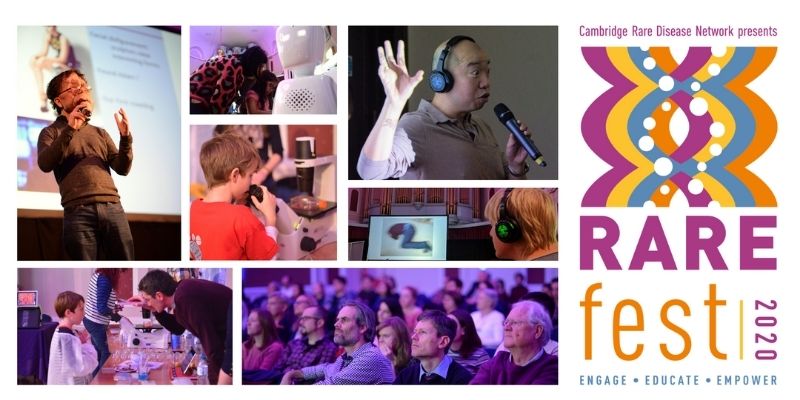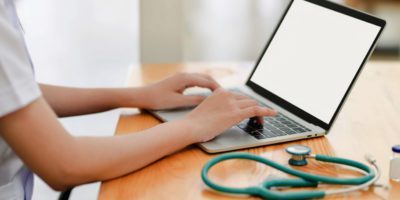Jo Balfour is managing director and a founding member of Cambridge Rare Disease Network (CRDN), a charity that brings together stakeholders from research, industry, business, healthcare and patient advocacy groups making a real difference in the lives of people living with rare diseases. Jo manages the overall operations of the charity, including their diverse events programme – RAREfest and RAREsummit, networking and educational events. She has 25 years’ of previous experience in secondary teaching, specialising in the field of special educational needs and children in care.

“Only 5% of all rare conditions have an authorised treatment and many affected children don’t survive until five years of age. This fragile ecosystem has been shattered further due to COVID-19 and the global response to it. Patients have gone undiagnosed as genomics clinics closed and health professionals were redeployed.”
Getting into teaching children with special educational needs and disabilities
I began my career in teaching in 1992 having undertaken a degree in geography at the University of Manchester followed by a PGCE at the University of Liverpool.
Following a baptism of fire in an all boy’s comprehensive school in Liverpool, I moved to London. Teaching there was a turbulent and life-changing time working in a vibrant but challenging inner city school. It was here that my path into specials needs education was carved.
I went on to manage the special educational needs and disabilities (SEND) department in schools in London and Cambridgeshire before becoming an advisory teacher for children in care in 2003.
My move into special educational needs teaching was within a mainstream school environment. I worked with many young people who struggled with this environment and was inspired by the specialist teachers I worked alongside in London who were able to differentiate, be adaptable, empathetic and creative to find ways of engaging all young people, irrespective of their learning or physical challenges.
I wanted to be able to help all young people find their place in the world and take part fully in a way that worked for them. Often it is the world around the child that is the barrier to them being fully enabled.
In 2015 I became a founding member of the Cambridge Rare Disease Network (CRDN), a passionate group of people intent on pulling together the disparate parts of an emerging rare disease research and therapeutic community within Cambridge’s science parks, the Biomedical Campus at Addenbrookes and the universities.
I was part of a team who held the first CRDN summit at Cambridge Judge Business School where we packed the room with experts and the curious to hear from rare disease pioneers from around the world.
Over the following five years I gradually devoted more time to the charity, creating and delivering their diverse events programme and establishing the UK’s first regional children and family’s group for those affected by any rare disease, Unique Feet. I took up the role of managing director of the charity a year ago following the retirement of our CEO, the inspiring Kay Parkinson, who lost both of her children to Alström Syndrome.
Supporting those with rare diseases
CRDN has three main areas of focus: raising awareness; promoting cross-sector collaboration; and supporting families.
To raise awareness and promote collaboration, we have developed a diverse events programme including our RAREsummit and Companies Forum which cater for the key stakeholders in rare diseases – the patients, patients advocacy groups, healthcare professionals, established and start-up pharmaceutical and biotech companies, researchers and policy-makers.
These events showcase emerging science, technology and advocacy and provide interactive opportunities for debate, networking and nurturing alliances.
We also deliver collaborative events with other organisations to reach audiences that are vital to making a difference, but more difficult to engage, and we take part in and deliver a broad range of public-friendly events to make sure rare disease is firmly embedded in more mainstream agendas.
Our Unique Feet community group is at the heart of all we do. This is a flourishing community of families affected by a wide range of rare conditions. Many will never meet another person with the same disease and their rare disease journey can be a lonely and torturous one, often plagued by the lack of a diagnosis, misdiagnosis, few available treatments and support.
We support the group to do fun activities together which are accessible, whatever their learning or physical needs. They have so many similar experiences, irrespective of their condition that they really feel they have found their tribe. The families are a passionate collective voice for rare disease in our community, speaking at events, engaging with the media, serving as trustees and advocating whenever they can.
Creative thinking, inspiring and cajoling, forensic planning, juggling and management
I rarely have two days the same and couldn’t begin to list the vast range of roles I undertake and tasks I do.
A significant part of my time is spent creating and delivering events of some description. This generally follows a linear path of creative thinking, inspiring and cajoling, forensic planning, juggling and management. We pride ourselves on being innovative and tackling problems in ways that others aren’t, on a shoestring, with a tiny core team.
The inspiring and cajoling aspect of my work is essential to persuade the right people to take part as speakers, exhibitors and volunteers, to engage experts and companies to help us with aspects of the work pro-bono, to encourage sponsors to fund our events and to inspire people to attend. I spend a lot of time building relationships with others and making them feel part of the team.
The forensic planning involves everything from developing social media schedules to managing budgets, creating marketing plans and maintaining immaculate logistics to ensure the events run smoothly. And management is a case of keeping my virtual team motivated, inspired and in tune and time with each other whilst keeping tabs on an army of volunteers.
I also take time to engage with our Unique Feet group whenever I can and help with the planning of their activities and applying for grants to fund these.
More recently our connections have been virtually through our WhatsApp group, socially distanced visits to a beautiful garden that has opened just for us, as well as regular Zoom activities including yoga and wine bar night! We’ve just started creating a virtual dance performance for our upcoming event RAREfest20 so I’m turning my hand to some filming and editing too.
It’s important to not be afraid of turning your hand to anything that’s needed in a small charity. It’s incredible just how much you can learn to do if you’re prepared to give it a go.
#RAREfest20
RAREfest20 is very much a public-facing event, a full-day festival featuring fascinating talks, a gallery of art, patient journey posters and film, some games and challenges and interactive exhibits showcasing cool science, visionary technology, and pioneering organisations improving lives and bringing hope to those affected by rare diseases.
The event is free 
Despite our plans to hold this event at the historic Guildhall in Cambridge, we’ve found an all singing all dancing virtual platform to try and emulate that festival feel. The aim of the festival is to kindle curiosity about rare disease, to educate the public and help dispel myths.
In 2018 we had 1000 attendees over two days and this year we hope to reach an even wider and more diverse audience from around the world.
The challenges people with rare diseases need to face
Those living with rare diseases were already struggling with delayed diagnosis, few treatments and uncertain care pathways. We call them ‘rare’ because each disease, individually, often affects only a few people.
However, there are more than 8,000 rare diseases, probably more as many remain undiagnosed their entire lives, so are collectively common. With 1 in 17 people affected, around 3.5 million in the UK and 350 million people worldwide, they have a global prevalence similar to asthma.
But the small numbers affected by each disease mean they struggle to attract attention, funding for research and interest from pharma companies. Only 5% of all rare conditions have an authorised treatment and many affected children don’t survive until five years of age. This fragile ecosystem has been shattered further due to COVID-19 and the global response to it. Patients have gone undiagnosed as genomics clinics closed and health professionals were redeployed.
Many who rely on carers coming into their homes or on external support such as physiotherapy have seen their services and support networks halted. For those taking part in clinical trials and those running them, the inability to travel to and visit trial centres or recruit patients or redeployment of their teams, has led to trials being paused. Even orphan drugs awaiting approval from regulators have been deprioritised.
Many families were directed to shield by the government and have continued to do so leaving them isolated and disconnected.
Keeping the community connected
We took all of our community activities online as soon as lockdown began providing yoga and catch up sessions to keep families connected. Our WhatsApp group chat became a great resource where mums shared experiences, ideas and tactics to get through shielding. The camaraderie was wonderful!
We received some COVID-19 emergency funding to support this and to enable us to make up and deliver activity bundles to each family once a month. We helped some to get online shopping slots and delivered shopping to others. It was a great team effort and I got as much from the community as they got from us.
During April I was fortunate to work with a team of six Cambridge University PhD students and we used our lockdown time wisely to undertake a five-year impact review and report for Unique Feet. The students were incredible, interviewing every family via Zoom and creating a beautiful testament to the success of the group.
In addition to this, we began a collaborative project with two other rare disease organisations – Medics for Rare Diseases and Rare Revolution Magazine to create Action for Rare Disease Empowerment (ARDEnt).
This multi-stakeholder coalition of UK-based experts involved in rare disease across different sectors – from patient advocacy professionals, data-managers, academics, healthcare and industry.
We are united in our goal to bring benefit by exploring how people affected by rare conditions may have been disproportionately negatively impacted by the COVID-19 pandemic in order to plan for a better response to future crises and improve the rare disease patient journey post COVID-19.
ARDEnt hopes to illuminate examples of creative adaptability and best practice which could be utilised more widely in the future. Findings and recommendations from ARDEnt’s Making the Unseen Seen project will be delivered as a report in order to influence the UK Rare Disease Strategy 2020 creation and implementation.
Future plans
RAREfest20 is our next major activity but this will be closely followed by our first foray into speed-dating. As part of our Companies Forum initiative, we’ll be hosting a partnering event between our forum pharma and biotech members and a selection of patient groups to facilitate better patient engagement in the drug development process.
We’ll be moving on in 2021 to the creation of our next RAREsummit and have plans to expand our community support programme by partnering with another charity called Same but Different who have been piloting a Rare Navigator programme, providing a caseworker for families affected by rare diseases.
We plan to hold some new joint events with others including a collaboration with the Eastern Academic Health Science Network to help spark innovation in solving the problems of rare diseases identified by patients themselves.
We hope to see the future development of ARDEnt as a truly collaborative project and to use this as a vehicle to hold devolved governments to account in the development and implementation of the UK Rare Disease Strategy due to be published at the end of 2020.
I plan to continue to lead CRDN into new ventures and to do what we do well in the service of those living with rare conditions.
https://www.linkedin.com/in/balfourjo/











